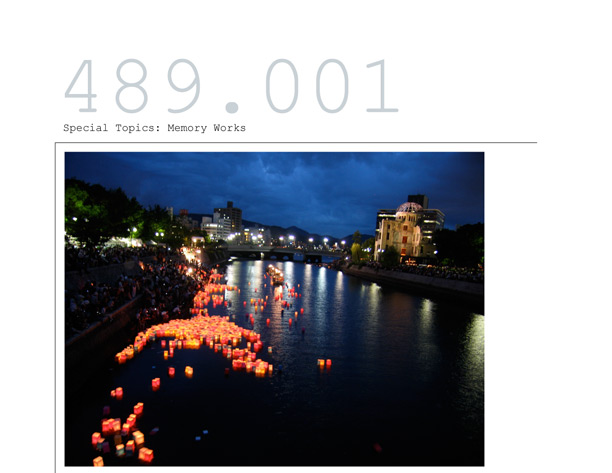
This course examines how national and local, as well as collective and personal memories are preserved, transformed, or politicized in modern and contemporary societies through acts of construction, reconstruction, memorialization and commemoration following human and natural catastrophes including war, terrorism, earthquakes and fires. The course will begin with a close reading of key scholarly works that theorize cultural and collective memory to familiarize ourselves with the important themes and issues that have been raised in relation to the complex issues surrounding activities and institutions of memory keeping. We will then examine and analyze selected case studies according to such themes as narrative, visualizing, forgetting and overcoming. Case studies will be drawn from around the globe – including European and Japanese cities in the aftermaths of World War II air-raids, post-war architectural heritage in the former Yugoslavia, memorialization practices in post-communist Eastern Europe, and recent American tragedies such as September 11th and Hurricane Katrina – but the main focus of the class will be the two major catastrophes of the Twentieth Century: the Holocaust and the dropping of the atomic bombs on Hiroshima and Nagasaki. In each site, we will look at various processes of memory work, including the reconstruction of the existing landscape, creation of monuments and memorials, rituals of memorialization and commemoration, as well as other means of memory preservation including written narratives, visual presentation, oral history narratives and museum exhibits, with a particular attention on how individual and collective memory is being treated and for what means. In the last weeks, students will present their research on a site of their choice. Estimated cost of materials: $50 or less. III. IV. 4
Tuesday
1:00pm - 4:00pm
130 Tappan
3 Credit Seminar